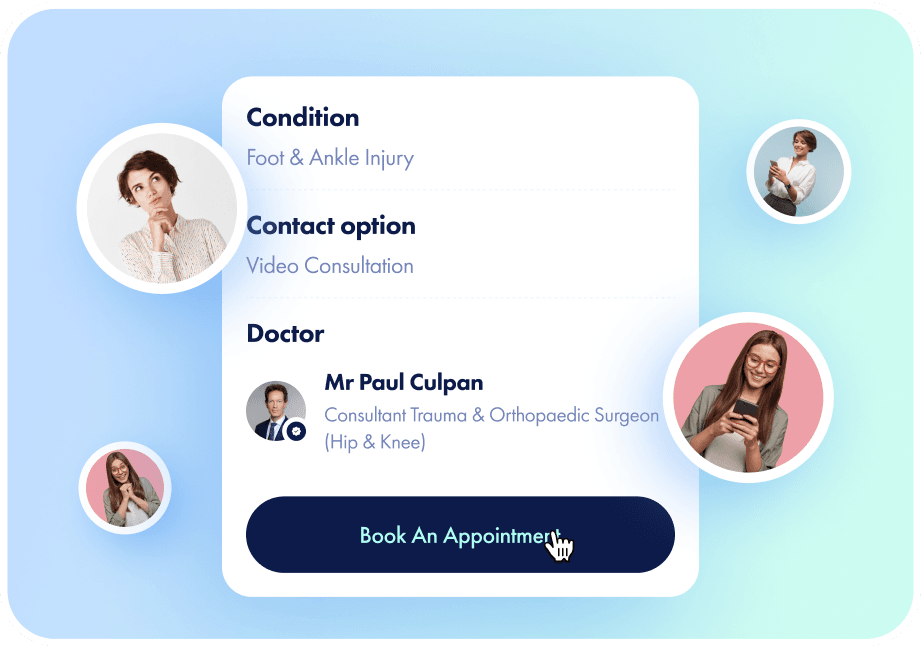
Conveniently reserve your spot with just a few clicks through our easy-to-use online booking system.


Dementia is a broad term used to describe a decline in cognitive function that interferes with daily life. It's not a normal part of ageing, although the risk does increase with age. While there's currently no cure for dementia, early diagnosis and management can significantly improve quality of life for both patients and caregivers. If you're concerned about yourself or a loved one experiencing memory loss, confusion, or personality changes, it's important to seek medical advice to explore potential causes and treatment options.
You are not required to provide a referral letter from your doctor or GP.
Start a visit quickly and discreetly whenever works best for you.
Our doctors review symptoms, prescribe treatments if needed.
Proceed with your healthcare journey as you wish. You're in control.
You control medical records, access anytime.
There’s no specific way of preventing dementia or most of the conditions leading to dementia. However, given the known dementia risk factors, you can reduce your risk of developing dementia (especially late-onset dementia) in the following ways:
Taking care of your physical and mental well-being
Avoiding head injuries
Staying active both physically and mentally
Maintaining a healthy body weight
Eating a healthy, well-balanced diet
Drinking and smoking less (or not at all)
Managing high blood pressure
Managing blood sugar levels
Staying socially connected with friends and family
Addressing hearing loss
Сontact us to schedule an appointment or learn more
Conveniently reserve your spot with just a few clicks through our easy-to-use online booking system.
Have a question or request? Drop us a message, and our team will get back to you promptly.
Feel free to give us a call, and our friendly staff will be glad to assist you over the phone.
Currently, there’s no cure for dementia. Like with many brain-related conditions, dementia is irreversible. However, certain treatments can slow down the progression of dementia, relieve the associated symptoms, and make it easier to live with the disease. Such treatments include:
In the UK, dementia is treated using four main drugs:
Donepezil
Galantamine
Memantine
Rivastigmine
Donepezil, rivastigmine, and galantamine belong to a group of drugs called cholinesterase inhibitors. They boost acetylcholine levels in the brain, a neurotransmitter that allows neurons to communicate with each other. Cholinesterase inhibitors are typically prescribed to dementia patients with Alzheimer’s disease, vascular dementia, or Lewy bodies.
Memantine works by checking the levels of glutamate, another neurotransmitter. People with dementia, particularly Alzheimer’s disease, tend to have excess glutamate, which damages nerve cells. The drug protects healthy nerve cells from damage by regulating glutamate action.
Other medications may be administered to treat the underlying condition or symptoms, such as Parkinson’s disease, depression, hallucinations, mood swings, and agitation.
Alternative therapies are also used, often alongside prescription drugs, to manage dementia and improve the patient’s quality of life. Complementary dementia treatments include:
Cognitive stimulation therapy
Cognitive rehabilitation
Occupational therapy
Aromatherapy
Light therapy
Transcutaneous electrical nerve stimulation (TENS)
Sometimes, the best treatment for dementia is to provide home-based or professional care and support, especially in the mid to late stages of the disease. Here are some of the ways you can care for a person with dementia:
Create a calm and relaxed environment
Speak to them in simple language
Use sensory stimulation techniques
Encourage the patient to participate in social and physical activities
Establish a daily routine
Living with dementia or caring for someone with dementia is not easy. It takes a high level of patience and understanding to get through every single day. But you don’t have to take this journey alone. Experienced neuropsychologists and geriatric psychiatrists at our London clinic are on hand to assist you as a dementia patient or caregiver. We offer personalised dementia treatment in London, along with a wealth of resources for better living with dementia.
Contact us or visit our London clinic to learn more.
From Home or Face to Face, all at your convenience
Schedule a Video Consultation or a Face-to-Face appointment at your convenience by using our online booking system.
Schedule a Video Consultation or a Face-to-Face appointment at your convenience by using our online booking system.
Your dedicated Specialist Doctor will provide you with personalized treatment, tailoring it to your specific needs, and may include necessary medication.
If you're navigating a diagnosis or seeking more information about Dementia assessment and treatment options, we're here to support you.
Schedule an appointment at our London-based clinic, where our team of experts is committed to providing personalised care and guidance every step of the way.












